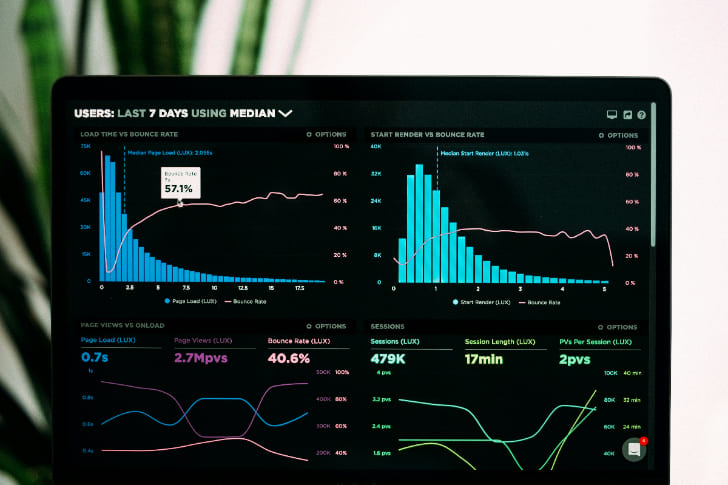Running a business is exciting, but it also comes with risks. From unexpected property damage to lawsuits, accidents, or even cyberattacks, these risks can put your company’s future at stake. That’s where business insurance steps in.
Business insurance acts as a financial safety net, protecting your company from losses caused by unforeseen events. But many entrepreneurs don’t fully understand what business insurance covers, how it works, or why it’s so critical.

In this article, we’ll cover the 10 most important things you must know about business insurance—so you can safeguard your company, your employees, and your peace of mind.
1. Business Insurance Is Not Optional
If you think business insurance is a luxury, think again. For many businesses, it’s a legal requirement.
- Workers’ Compensation Insurance: Mandatory in most states if you have employees. It covers medical expenses and lost wages for employees injured on the job.
- Commercial Auto Insurance: Required if your company owns vehicles.
- General Liability Insurance: While not always legally required, landlords, clients, and contractors often demand proof before working with you.
Even when it’s not legally mandated, business insurance is essential to protect you from financial ruin. One lawsuit or major accident could bankrupt an uninsured company.
2. There Are Different Types of Business Insurance
Not all business insurance is the same. Policies are designed to protect different aspects of your company. Here are the main categories:
- General Liability Insurance: Covers third-party injuries, property damage, and legal claims.
- Property Insurance: Protects buildings, equipment, inventory, and physical assets.
- Professional Liability Insurance (Errors & Omissions): Covers mistakes, negligence, or inadequate work, especially for service-based businesses.
- Workers’ Compensation Insurance: Required in most states for employees.
- Commercial Auto Insurance: Covers vehicles used for business purposes.
- Cyber Liability Insurance: Protects against data breaches and cyberattacks.
- Business Interruption Insurance: Covers lost income if your business shuts down due to a disaster.
Understanding which coverage types you need depends on your industry, location, and business model.
3. A Business Owner’s Policy (BOP) Bundles Coverage
For small to medium-sized businesses, insurers often offer a Business Owner’s Policy (BOP).
A BOP typically combines:
- General Liability Insurance
- Commercial Property Insurance
- Business Interruption Insurance
Buying a BOP is usually cheaper than purchasing each coverage separately. It’s a practical option for startups or small businesses looking for comprehensive protection at a reasonable cost.
4. Business Insurance Protects Against Lawsuits
In today’s world, lawsuits are common. A customer could slip and fall in your store, a competitor could accuse you of false advertising, or a client could sue over a missed deadline.
Without business insurance, you’d have to pay:
- Attorney fees
- Court costs
- Settlements or judgments
Even if you’re not at fault, legal battles are expensive. General liability or professional liability insurance ensures that your business doesn’t collapse under the financial weight of a lawsuit.
5. Industry and Business Size Affect Premiums
Not all businesses pay the same for insurance. Premiums depend on:
- Industry Risk: A construction company will pay higher premiums than a graphic design firm.
- Business Size: The more employees, vehicles, or assets you have, the higher the cost.
- Claims History: If you’ve filed many claims, expect higher rates.
- Location: Businesses in areas prone to natural disasters or crime may pay more.
This means two companies with the same revenue could have very different insurance costs depending on their risks.
6. Business Insurance Doesn’t Cover Everything
A common misconception is that business insurance covers all risks. The truth is—there are exclusions.
Standard policies usually do not cover:
- Floods and earthquakes (you need separate coverage).
- Intentional damage or fraud.
- Wear and tear of equipment.
- Pandemics or government shutdowns (unless specified).
Always read the fine print. Some risks require add-ons or separate policies.
7. Insurance Can Save Your Business in a Disaster
Natural disasters like fires, floods, or storms can destroy a business overnight. If you don’t have insurance, you may never recover.
For example:
- Property Insurance replaces damaged buildings and inventory.
- Business Interruption Insurance covers lost income while you rebuild.
- Commercial Auto Insurance repairs or replaces damaged vehicles.
Insurance ensures your company can reopen after disaster strikes instead of shutting down permanently.
8. Employees Are Protected Too
If you have staff, workers’ compensation insurance is vital. It protects both the employer and employees.
- Covers medical bills and lost wages for injured workers.
- Protects the employer from lawsuits related to workplace injuries.
Additionally, offering health insurance and disability insurance can make your business more attractive to employees, helping with recruitment and retention.
9. Cyber Insurance Is Becoming Essential
In the digital age, cyberattacks are one of the biggest risks businesses face. Hackers can steal customer data, freeze your systems, or demand ransom payments.
Cyber liability insurance helps by covering:
- Data breach costs (legal fees, notifications, credit monitoring).
- Business interruption from cyberattacks.
- Liability if customers sue over compromised data.
Even small businesses are frequent targets, making cyber insurance more relevant than ever.
10. Regularly Reviewing Your Policy Is Crucial
Your business will evolve over time—new employees, more clients, bigger revenue, additional assets. If your insurance doesn’t keep up, you may end up underinsured.
Best practices:
- Review your policy annually.
- Update coverage when you expand, hire, or buy new equipment.
- Compare quotes from different providers to ensure competitive rates.
A policy that worked when you launched your business may not be enough as you grow.
Final Thoughts
Business insurance isn’t just a checkbox—it’s a shield that protects your company, employees, and future. From liability lawsuits to cyberattacks or natural disasters, having the right coverage can mean the difference between survival and closure.
Here’s a recap of the 10 things you must know about business insurance:
- It’s often legally required.
- Different types of coverage exist for different risks.
- A Business Owner’s Policy (BOP) can save money.
- It protects you from lawsuits.
- Premiums vary by industry, size, and risk.
- It doesn’t cover everything—check exclusions.
- It safeguards you in disasters.
- Employees benefit from coverage too.
- Cyber insurance is becoming essential.
- Policies must be reviewed regularly.
Investing in business insurance isn’t just smart—it’s essential for long-term success. By understanding your options and tailoring coverage to your needs, you’ll be better equipped to face whatever challenges come your way.









Leave a Reply